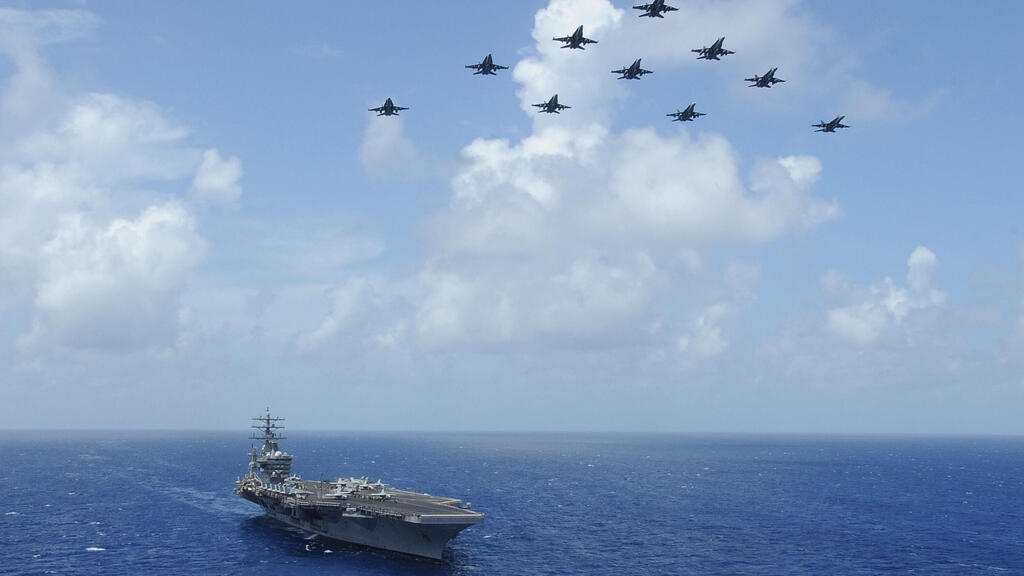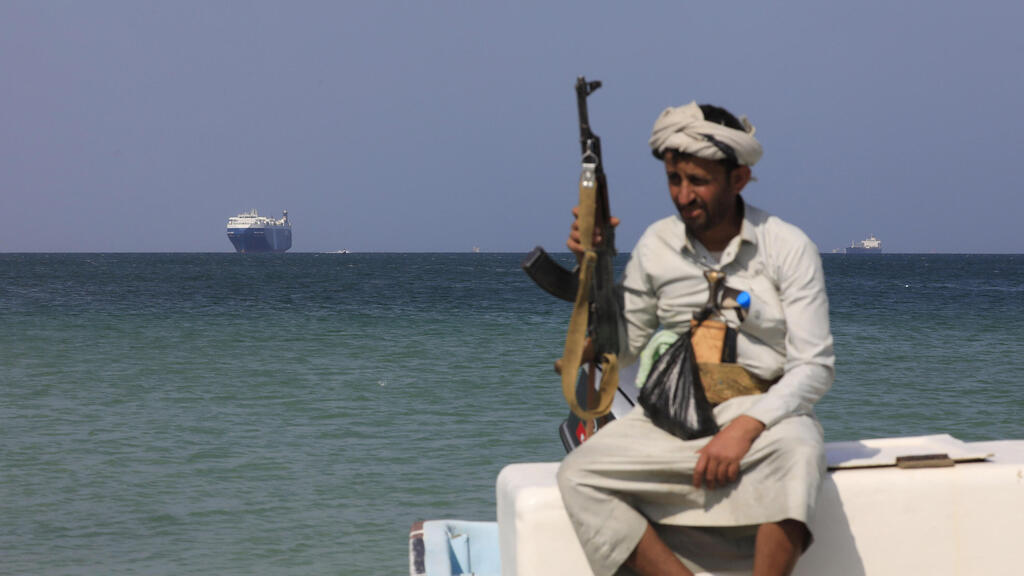Getting your Trinity Audio player ready...
The U.S. is considering an attack on the Houthis in Yemen after the spike in attacks meant to impose a "naval blockade" on Israel and disrupt maritime trade routes that are critical for the world economy, Politico reported late on Saturday, citing two Biden administration officials.
More stories:
One official told Politico that the Pentagon moved the Dwight D Eisenhower Carrier Strike Group into the Gulf of Aden, off the coast of Yemen, in support of possible U.S. action. The group was moved from the Persian Gulf where it had been deployed at the start of the war in Gaza as part of the U.S. effort to assist Israel and deter Iran and its proxies from opening additional fronts against the Jewish state.
2 View gallery


USS Dwight D Eisenhower
(Photo: AFP/ US Department of Defense/US Navy/Mass Communication Specialist 2nd Class Ryan D. McLearnon)
One-tenth of the world's oil and an estimated trillion dollars in goods pass through the Bab el-Mandeb Strait each year, a strategic chokepoint between the Red Sea and the Gulf of Aden, and all maritime traffic heading to Egypt's Suez Canal must pass through there.
The report comes on the heels of an escalation in Houthi attacks in recent days and after the Pentagon said 14 attack drones launched from Houthi-controlled areas in Yemen were shot down by the USS Carney, and an additional drone was shot down by a British destroyer, the HMS Diamond.
The Iranian-backed Houthis said they fired a barrage of drones toward the port city of Eilat in southern Israel. The announcement came hours after Egypt’s state-run media reported that Egyptian air defenses had shot down a “flying object” off the Egyptian resort town of Dahab on the Red Sea.
U.S. Defense Secretary Lloyd Austin was scheduled to arrive in Israel on Monday for meetings with Israeli leaders, accompanied by the Chairman of the Joint Chiefs of Staff, General Charles Brown. The two were also expected to travel to Bahrain and Qatar in an effort to establish an international coalition to respond to the threats posed by the Houthis.
Ahead of his trip, Austin extended the deployment of the USS Gerald Ford Carrier Strike Group sent to the Mediterranean in early October, for an additional month.
There are currently 19 American warships in the area, seven in the Mediterranean Sea and 12 in the Red Sea, the Arabian Sea and the Persian Gulf.
Despite the U.S. efforts to defend against the Houthi attacks, Maersk, the world’s largest shipping company, announced on Friday that it was ordering all of its vessels heading to the Bab el-Mandeb Strait to stop their journeys after a missile attack on a Liberian-flagged cargo ship.
German-based shipper Hapag-Lloyd said it was pausing all of its container ship traffic through the Red Sea until Monday, and on Saturday French container shipping line CMA CGM Group said it had ordered all its vessels scheduled to pass through the Red Sea to “pause their journey in safe waters with immediate effect until further notice.”
MSC, the world's biggest container shipping line also said on Saturday they would avoid the Suez Canal. OOCL (Orient Overseas Container Line) announced on Sunday that it will immediately stop transporting cargo to and from Israel until further notice "due to operational problems."
The cargo vessels would now need to sail around Africa to avoid Houthi strikes, resulting in rising prices for goods not only in Israel but on the world market as well.
Houthi spokesman Mohammed Abdel-Salam said Saturday that the rebels have engaged in “communications and discussions” with international parties, brokered by Oman. In an X post, he said attacks on Israeli-linked vessels would continue “until the aggression stops” and the siege of Gaza is lifted.
Israel has said it is the responsibility of the international community to solve the crisis but warned that without an effective resolution, the IDF may have to take action.
"This is a worldwide problem that also affects Israel," Defense Minister Yoav Gallant said on Saturday. "We are giving the international community a chance to resolve it but if we find that we are the last resort, we will know what to do."



